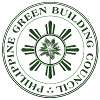Philippine Green Building Council
The Philippine Green Building Council (PHILGBC) is a national non-stock, non-profit organization that promotes the sharing of knowledge on green practices to the property industry to ensure a sustainable environment. It was organized to serve as a single voice in the promotion of holistic and market-based green building practices, to facilitate the sharing of green building information and practices in the building industry, and to serve as a non-partisan venue for the development of the BERDE Green Building Rating System.[1][2][3]
 | |
| Formation | 2007 |
|---|---|
| Type | non-profit |
| Focus | Green building |
| Location |
|
| Website | philgbc |
In early 2006, a group of environmental advocates and business leaders convened to form PHILGBC with the realization that an organization is needed to promote greener buildings and coordinate efforts to sustainability. Incorporated in 2007, PHILGBC has been campaigning for the transformation of design, construction and management methods of the industry into practices that are environmentally and socially responsible, safe and healthy, and a prosperous environment that improves the quality of life.[4]
PHILGBC is an Emerging Member of the World Green Building Council (WorldGBC) and a member of the WorldGBC - Asia Pacific Network.[5] The Council is also a member organization of the International Initiative for a Sustainable Built Environment (iiSBE), and a global partner of the GLOBE Alliance.[6]
Building for Ecologically Responsive Design Excellence
The Building for Ecologically Responsive Design Excellence (BERDE) Program was developed by PHILGBC as an appropriate response to the Philippine building industry’s need to proactively address the negative impacts of climate change in the property sector.
The BERDE Green Building Rating System is developed under the BERDE Program. It is a tool to measure, verify and monitor performance of buildings above and beyond existing mandatory building and environmental regulations and standards. The rating tool is consensus driven and is achieved through a multi-stakeholder consultation and collaboration process. BERDE Assessment and Certification is credible, unbiased, balanced and impartial and is achieved through a third party certification process conforming with international standards.[7]
BERDE is recognized as the National Voluntary Green Building Rating System of the Philippines through the Philippine Energy Efficiency Project: Efficient Building Initiative (PEEP-EBI) of the Department of Energy.[8]
Building Green
Started in 2007, Building Green is the series of conferences of the Philippine Green Building Council that highlights the current green practices of the industry. It features the latest innovative trends in building products, architecture, engineering and construction as initiated by the industry's best and brightest minds. The conference series was started as a venue for green building dialogue and to further develop and promote BERDE, as the National Green Building Rating System.
See also
References
- "About the PHILGBC". http://philgbc.org/. Philippine Green Building Council. Archived from the original on 6 October 2014. Retrieved 3 October 2014. External link in
|website=(help) - "Building 'green' cities with UK experts". Philippine Daily Inquirer. 10 April 2009. Retrieved 28 February 2011.
- "Australia Marks World Green Building Week". Manila Bulletin. 29 September 2010. Retrieved 28 February 2011.
- "About the PHILGBC". http://philgbc.org/. Philippine Green Building Council. Archived from the original on 6 October 2014. Retrieved 3 October 2014. External link in
|website=(help) - "Member List". World Green Building Council. World Green Building Council. Retrieved 3 October 2014.
- GLOBE Alliance. GLOBE Alliance http://globealliance.org/. Retrieved 3 October 2014. Missing or empty
|title=(help) - "About BERDE". BERDE Online. Philippine Green Building Council. Archived from the original on 6 October 2014. Retrieved 3 October 2014.
- "Department of Energy's Green Buildings". Tempo. July 30, 2013. Retrieved 3 October 2014.
External links
- Philippine Green Building Council official website
- BERDE Online
- World Green Building Council